Realistic dummies of dishes in Japanese restaurants
Categories: Asia | Culture | Design and Architecture | Food and Drinks | People | Photo project | Society | Travel | World
By Vika https://pictolic.com/article/realistic-dummies-of-dishes-in-japanese-restaurants.htmlJapanese restaurants often showcase their mouth-watering dishes in shop windows, in restaurant windows. Sushi, noodles, soups, meats, and even ice cream - everything looks so that you lick your fingers. But all this food in the window is made of plastic and is a surprisingly realistic dummy. Such dummies are created so that a potential buyer can immediately see what the dishes from the menu look like. The replicas of dishes are so realistic that one involuntarily wants to try them. The use of dummies is very convenient for tourists who do not know Japanese since almost all Japanese cafes and restaurants have menus written exclusively in Japanese. In order not to puzzle over the correct translation of the dish, a restaurant visit can simply point his finger at the model.
12 PHOTOS
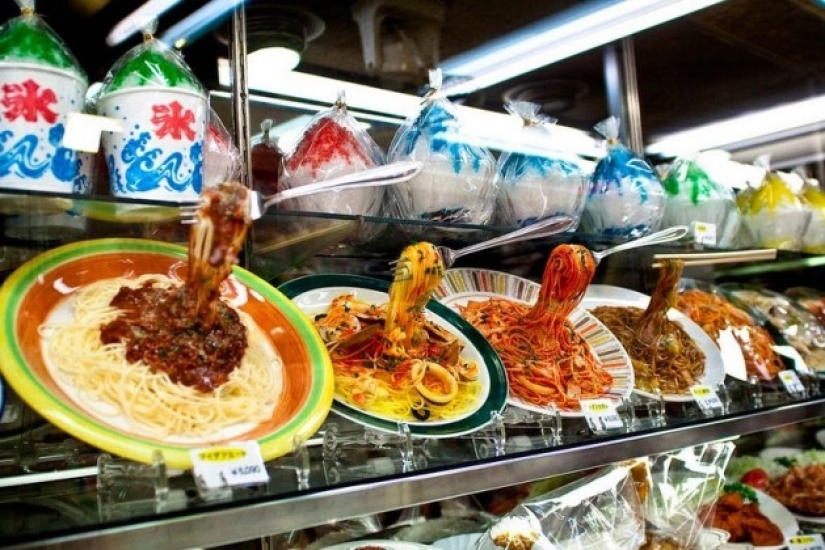
1. Food replicas are called sampuru and started appearing in Japan almost 100 years ago, in 1917. The new year will be the 100th anniversary.
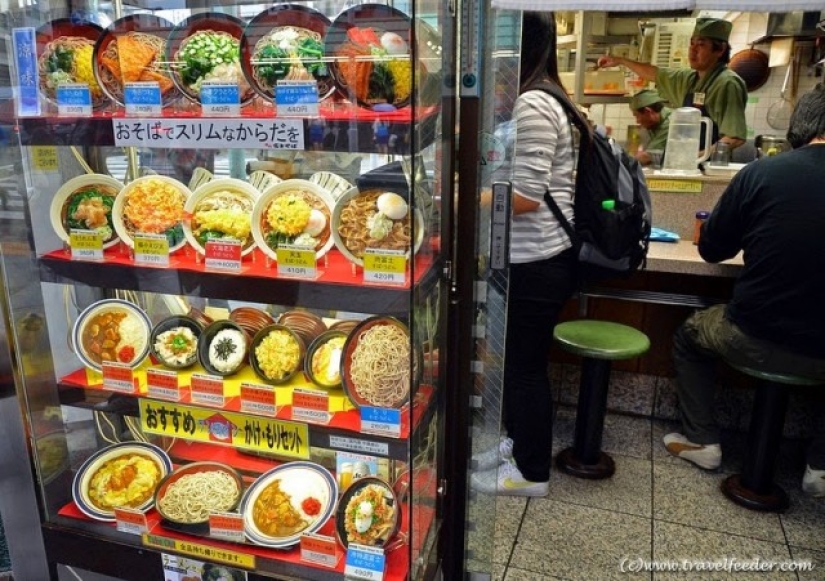
2. In the beginning, they were only used as home decorations, like artificial houseplants.
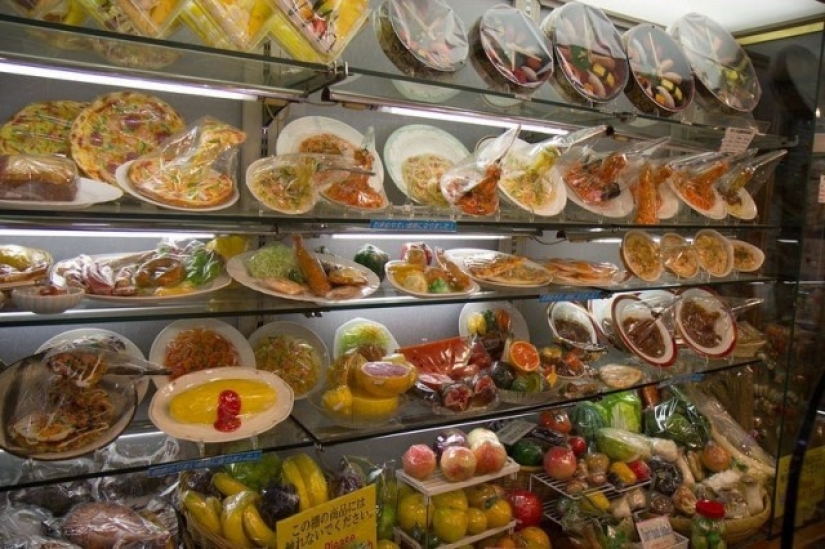
3. A few years later, a restaurant in Tokyo decided to use fake food to attract customers, and the idea has taken off ever since.
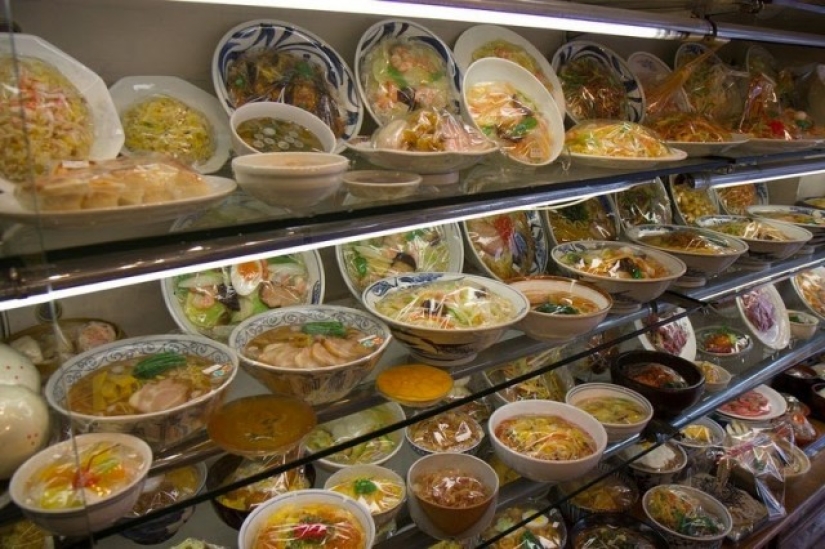
4. The use of dummies put an end to the need to use your imagination when looking at menus. Models began to be used in restaurants everywhere and were also used to order catering for the New Year, corporate parties, and other events.
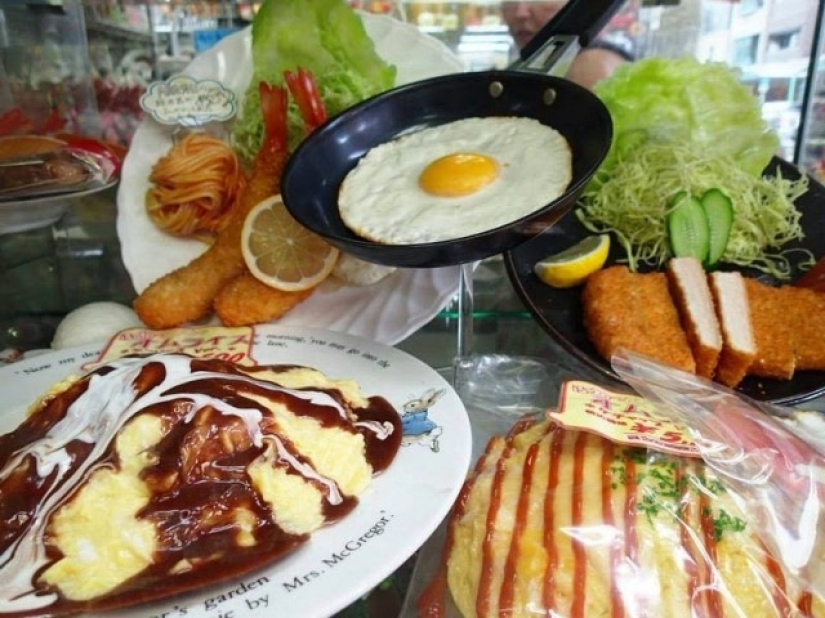
5. Dish replicas show exactly what you'll get by accurately displaying the shape, size, and color of the dish.
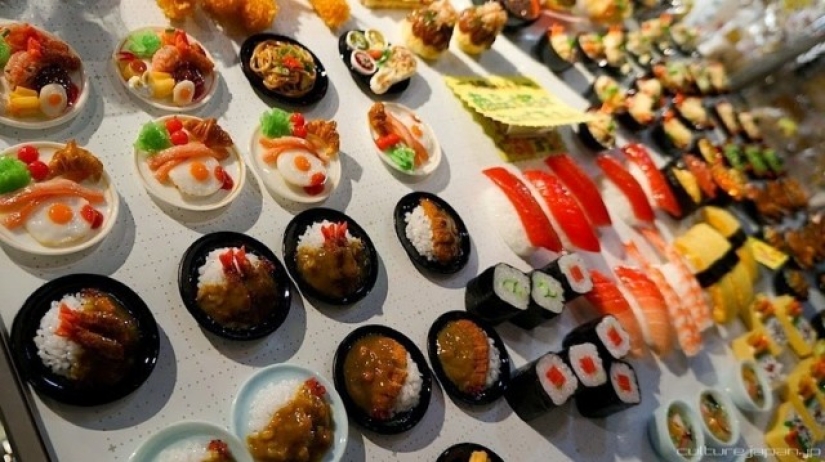
6. Some restaurants spend one million yen ($9,622) to order fakes.
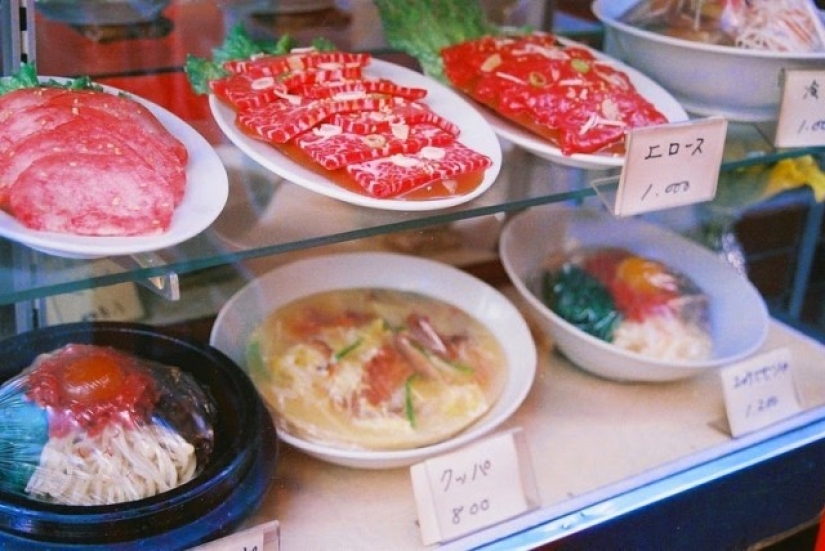
7. Making plastic food is an art in itself, keeping its secrets.
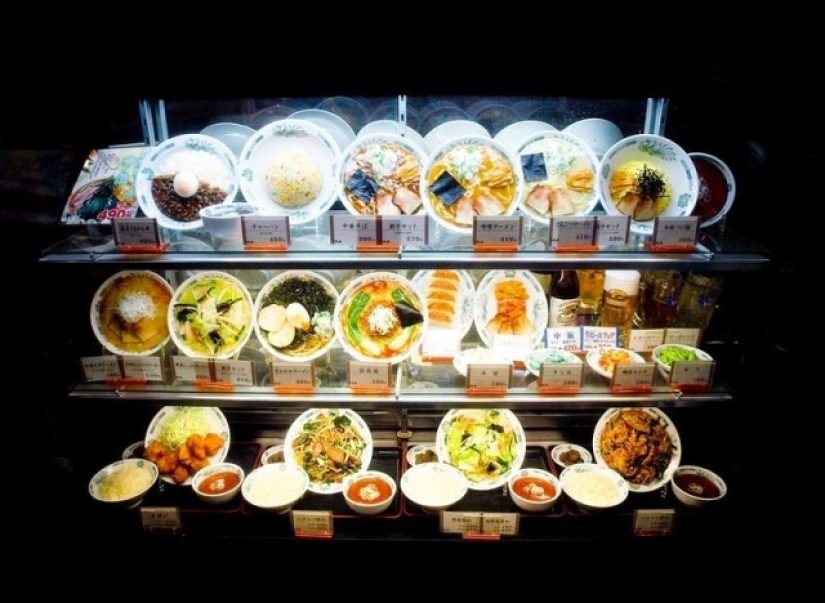
8. The process usually begins with the preparation of the dish, which is delivered from the restaurant to the manufacturing plant to serve as a model.
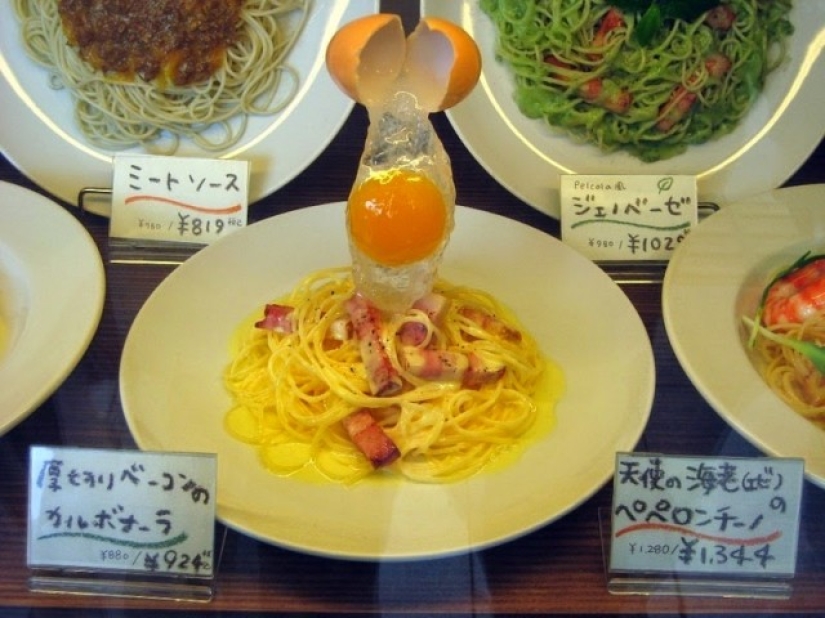
9. Food is photographed, sketches are drawn, after which a shape is created.
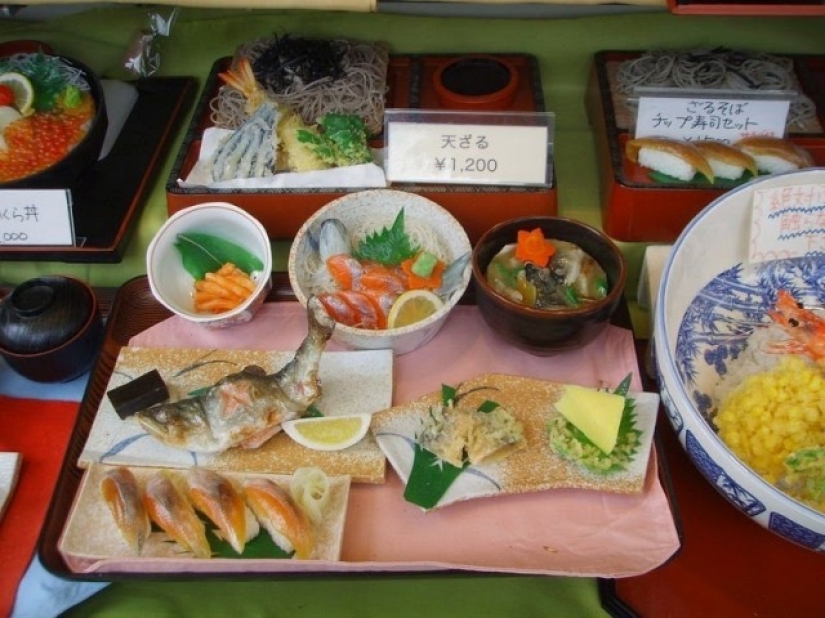
10. Liquid vinyl chloride is poured into the mold. After hardening, the mold is disassembled and the preparation of the dish is removed.
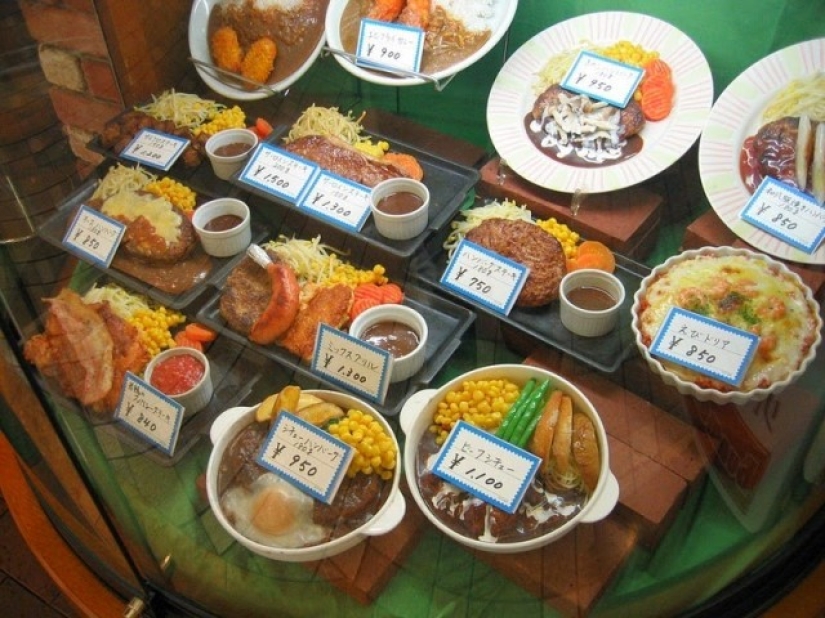
11. Next, talented craftsmen, with the help of oil paint and a thin brush, give the form the look of a finished dish.
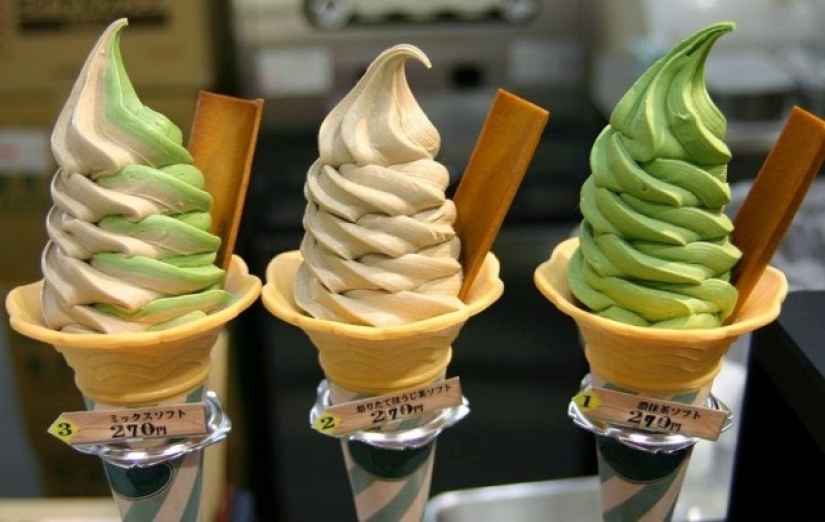
12. Models convey every detail of the dish, down to the bubbles of oil or the degree of doneness of the steak. By the way, you can buy such a dish as a souvenir. Models can be bought by visiting Kappabashi-dori in Tokyo.
Keywords: Realistic dummies | Japanese restaurants | Dishes | Shop windows | Restaurant windows | Realistic dummy | Food
Post News ArticleRecent articles

It's high time to admit that this whole hipster idea has gone too far. The concept has become so popular that even restaurants have ...

There is a perception that people only use 10% of their brain potential. But the heroes of our review, apparently, found a way to ...
Related articles

We live in a society that even in the 21st century willing to believe in omens and superstitions. Among them are quite stupid, for ...

Looks can be deceiving not only in humans, but some items, the real purpose of which is failing. At first glance, this fragrant ...

Hobbies are very different… For example, Dmitry from Jurmala spends his leisure time making scale models from improvised ...

New Year's is a time to surprise and delight loved ones not only with gifts but also with a unique presentation of the holiday ...